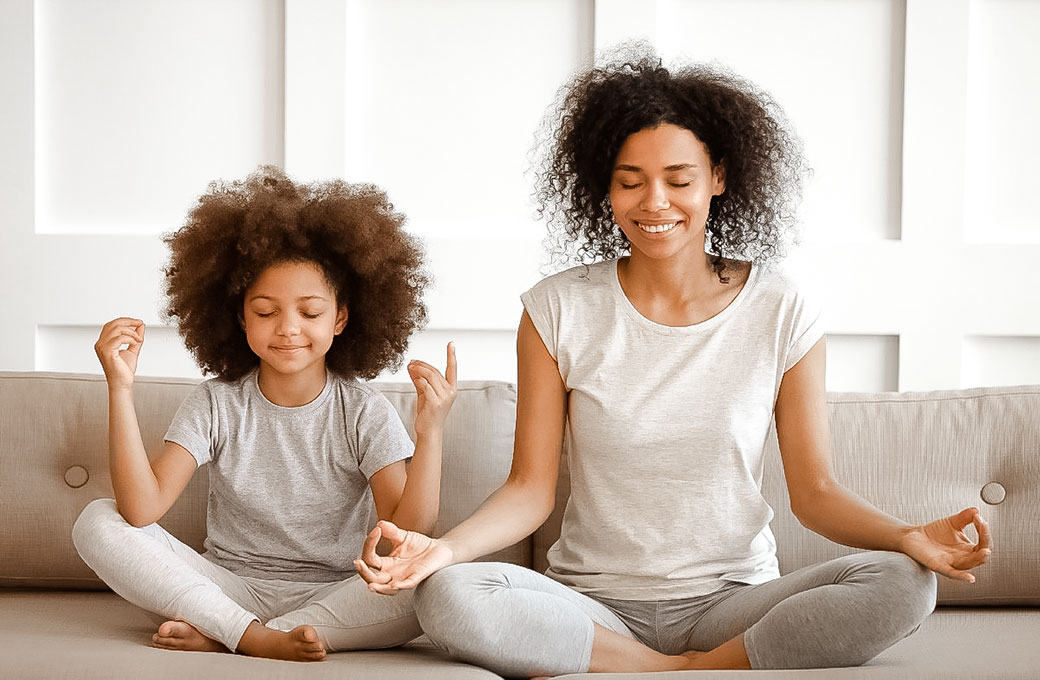
I’m sure that by now you’ve heard about all of the benefits of meditation. Besides being a great way to ground yourself and clear your mind, practicing meditation daily can reduce stress, anxiety and depression while improving mood, resilience, focus and a sense of well-being.
But if the thought of sitting still as your to-do list races through your mind is making you tense, that’s totally normal. Having trouble focusing and being still is very common when you are new to meditation. So I’m sharing 11 must-try meditation tips for beginners that will help you meditate more effectively and enjoy all of the health and mental benefits.
11 Must-Try Meditation Tips For Beginners
1. Find a good time for you to meditate
Right when you get up or before you go to bed are good times to practice. Whatever time you choose, just make sure you stick to it. Consider this time as much-needed self-care and make meditating a priority for yourself just like you would for everything else that’s important in your life.
2. Find a peaceful place for meditation
Limit distractions by turning off the radio, TV, and cell phone. Close the windows and doors to avoid any outside noise.
3. Choose a comfortable position
Keep an elevated posture. Leaning or slouching will create tension and discomfort. Elevate your posture and you’ll feel more open to the world. Relax in a crossed legged or other comfortable sitting position and rest your hands in your lap. You can also lie down on your back if you prefer. I have back issues so I find that to be the most comfortable position for me. Just be sure not to fall asleep!
4. Focus on your breath
Mindful breathing is the most valuable form of meditation. Just focus on your breathing. When your mind wanders, gently return your focus to your breath. It may help to say a mantra and visualize breathing in good energy and letting out the bad energy with each cycle. Breathe at a pace that’s comfortable for you. Work toward deep, long breaths.
5. Acknowledge your thoughts
You want to remain fully present while you’re meditating, and there’s no doubt that thoughts are going to enter your mind while you’re trying to concentrate. Don’t be frustrated by these thoughts, but at the same time don’t let thoughts take your attention completely away. Acknowledge your thoughts and then bring your focus back to your breath.
6. Fight the urge to fidget
Fidgeting can also be associated with nervousness. Sitting with your back resting lightly against a wall or your feet touching a pillow may provide a sense of security and reassurance. You can also try folding your hands or holding something. This makes it less likely you’ll engage in other movement. You can use traditional prayer beads or anything small like a ball or piece of cloth.
7. Meditate before you eat
A big meal can make you sluggish and uncomfortable. An empty stomach is one of the best ways to stay alert and focused while you are meditating.
8. Use a timer
Let’s say you plan to meditate for 15 minutes. It can be very distracting to keep wondering how much time is left. Most likely, you will lose focus. Use a timer instead and keep your attention where it belongs. A timer will also keep you from getting too relaxed and falling asleep.
9. Take it slow
Respect your limits. You’re bound to squirm if you’re meditating too much too soon. Five minutes is a good start. Add a few minutes each week until you reach your goal. I also find that doing a few one-minute meditations throughout the day help me destress and clear my head.
10. Be gentle
Meditation isn’t about forcing yourself to concentrate with tremendous effort. Meditation gives energy. It doesn’t take energy from you. Use gentle, persistent attention. You’ll be more successful and enjoy the process much more.
11. Keep an open mind
Be prepared for days when insights come easily, and other days when your mind wanders in circles. As long as you meditate consistently, you will move forward.
Practice these 11 must-try meditation tip for beginners to relax, motivate, or energize you, depending on your purpose for each session. But it requires time and practice. It might be tough in the beginning, but if you stick with it, you will begin to experience more balance and peace in your life.

